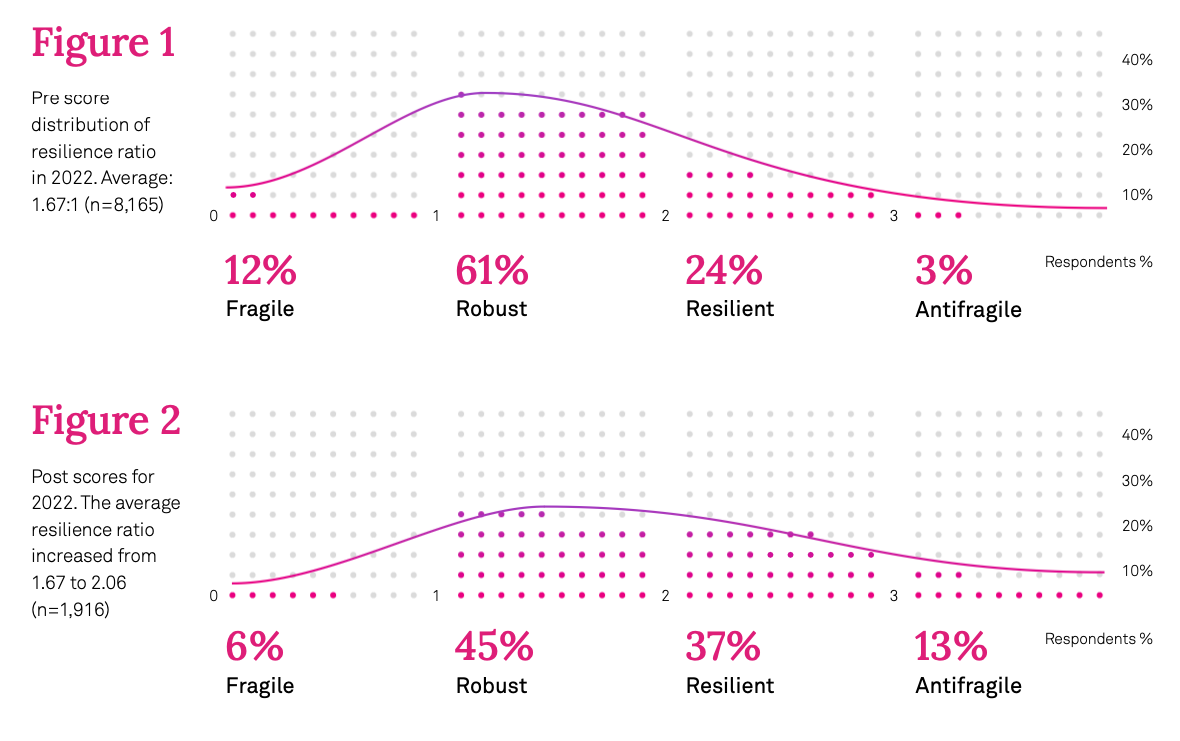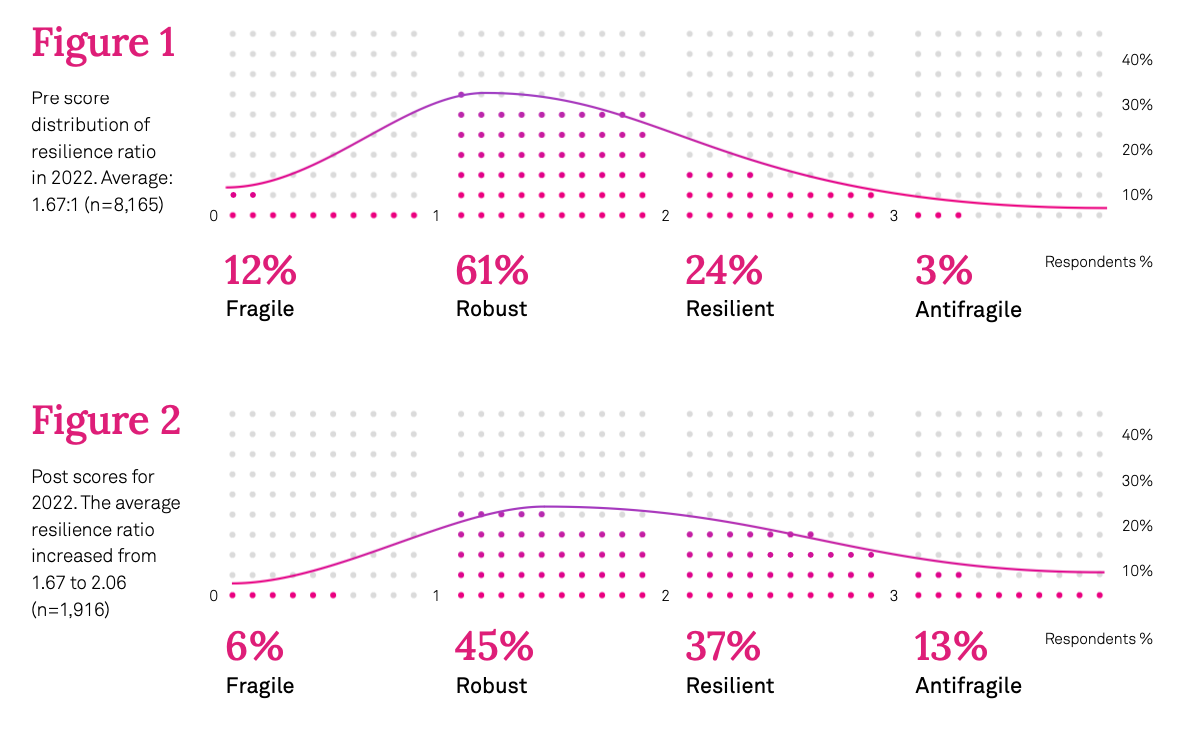
New global research conducted by leading providers of evidence-based resilience training – Springfox and global partners, the Resilience Institute – reveals that resilience levels in younger employees are extremely low and on a downward trend, with women at greater risk than men.
The 2023 Global Resilience Report highlights a pressing need to address alarmingly low and falling resilience levels among workers under 30. The report’s findings suggest younger workers are at greater risk of developing anxiety and depression symptoms compared to workers over 30, posing a significant risk to their mental health, performance, and productivity.
Support required for younger workers
The data shows that nearly one-in-five (18%) workers under 30 are classified as being fragile, meaning likely to break in adversity, while just one-in-10 (11%) workers over the age of 30 are classed as fragile. A further 60% of employees under 30 are considered to be robust, meaning they are coping but distressed – leaving a high proportion of younger workers at risk of mental health issues.

Graph showing Resilience Ratio distribution for participants under 30.
Workplace support and training directly benefits resilience
The report highlights factors such as worry, rumination, uncertainty, boredom, anxiety, and indecisiveness as having a negative impact on younger workers’ resilience levels. Evidence shows that by learning to master these risk factors, younger workers can decrease their risk of mental health issues.
Evidence shows that employees who undertook workplace resilience training in were likely to improve their strengths to risks ratio. Before training, 12% of workers were classed as fragile, 61% as robust, 24% as resilient, and 3% as antifragile. Following training, these percentages improved with just 6% of workers classed as fragile, 45% as robust, 37% as resilient, and 12% as antifragile.
 Pre-score distribution of Resilience Ratio in 2022. Average: 1.67:1 (n=8,165)
Pre-score distribution of Resilience Ratio in 2022. Average: 1.67:1 (n=8,165)

Post-score distribution of Resilience Ratio in 2022. The average Resilience Ratio increased from 1.67 to 2.06 (n=1,916)
Women under 30 report lower resilience levels than any other group
More than one-in-five (21%) women under 30 are reported to have especially low Resilience Ratios. This compares to about one-in-10 (11%) for those over 30 years old.
Key findings of the report show that women under 30 exhibit significantly lower resilience than their male counterparts, lagging behind in areas such as tactical calm, and bounce. Women under 30 also demonstrate lower levels of trust, purpose, focus, influence, decisiveness, impulse control, emotional agility, assertiveness, and sleep quality compared to men under 30.
“Younger workers experiencing depleted levels of resilience are significantly more at risk of developing anxiety and depression, impacting their wider health and productivity," Peta Sigley, Springfox Co-Founder and Resilience Expert said.
"Employers must consider how they develop onboarding and graduate programs to further support these employees in building the skills required to grow and maintain the resilience required to successfully navigate through periods of personal and professional adversity."
Sigley said that by integrating these critical skills into employee training and development programs, organisations can equip future leaders with the resilience strategies required to achieve performance with care.
"The message to employers is clear: more needs to be done to support the future of our workforce and to build the skills required to minimise worry, protect against fatigue, master anxiety, stay engaged and fit, and reduce rumination," Sigley said.
"Employers who value their staff today play a key role in supporting these skills now and into the future.”


